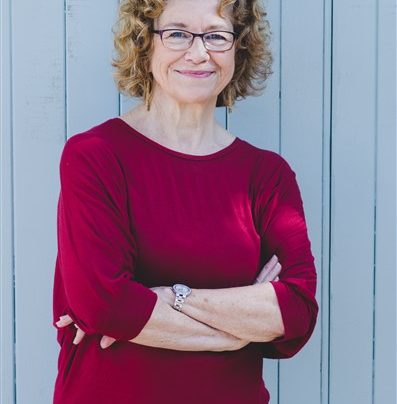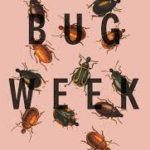Surely any author would return from the dead to sample the delicious Greek cuisine Sarah and Taki would offer them. Read on to find out about some of Sarah’s favourite authors and books, then join us to celebrate the launch of Shirley Smith: An Examined Life by Sarah Gaitanos (Victoria University Press), 6-7:30pm Monday 10th June 2019.
About the book
Shirley Smith was one of the most remarkable New Zealanders of the 20th century, a woman whose lifelong commitment to social justice, legal reform, gender equality and community service left a profound legacy.
She was born in Wellington in 1916. While her childhood was clouded by loss – her mother died when she was three months old and her beloved father, lawyer and later Supreme Court Judge David Smith, served overseas during the war – she had a privileged upbringing. She studied classics at Oxford University, where she threw herself into social, cultural and political activities. Despite contracting TB and spending months in a Swiss clinic, she graduated with a good Second and an intellectual and moral education that would guide her through the rest of her life.
She returned to New Zealand when war broke out, and taught classics at Victoria and Auckland University Colleges, before marrying eminent economist and public servant Dr W.B. Sutch in 1944, and giving birth to a daughter in 1945. She kept her surname – unusual at the time – and poured her energy into issues of human rights and social causes. She qualified as a lawyer at the age of 40, and in her career of 40 years broke down many barriers, her relationship with the Mongrel Mob epitomising her role as a champion of the marginalised and vulnerable.
In 1974, Bill Sutch was arrested and charged with espionage. After a sensational trial he was acquitted by a jury, but the question of his guilt has never been settled in the court of public opinion. Shirley had reached her own political turning point in 1956, with Khrushchev’s revelations about Stalin and the Hungarian crisis, but she remained loyal to her husband, and the ongoing controversy weighed on her later years.
Shirley Smith: An Examined Life tells the story of a remarkably warm and generous woman, one with a rare gift for frankness, an implacable sense of principle, and a personality of complexity and formidable energy. Her life was shaped by some of the most turbulent currents of the 20th century, and she in turn helped shape her country for the better.
About the author
Sarah Gaitanos is the author of The Violinist: Clare Galambos Winter, Holocaust Survivor; Nola Millar: A Theatrical Life; and with Alan Bollard, Governor of the Reserve Bank of New Zealand, the bestseller Crisis: One Central Bank Governor and the Global Financial Collapse. Sarah is an independent writer, researcher and oral historian.
WHAT ARE YOU CURRENTLY READING AND HOW DID YOU DISCOVER THE BOOK(S)?
I’m currently reading a novel, Ordinary People by Diana Evans, which I read about in a review. Also The Silence of the Girls by Pat Barker, which my son and daughter-in-law gave me. And I’ve just started Artemis Cooper’s biography, Elizabeth Jane Howard: A Dangerous Innocence, which I bought after attending her session at the Auckland Writers’ Festival.
WHO ARE YOUR FAVOURITE WRITERS AND WHAT DO YOU LOVE ABOUT THEM?
Tough question. My favourite writers are too many to list and too various to rank. They would include the obvious great writers I studied in my youth, Shakespeare, Jane Austen, Dickens, Virginia Woolf, Hilary Mantel, many more including poets. They are like old friends I’d like to see again, but my interests and curiosity tends to lead me into new territory. I read a lot of non-fiction, especially biographies. I greatly admire historian Margaret Macmillan. I constantly refer to her, especially The Uses and Abuses of History. It’s a gem.
WHAT BOOKS ARE ON YOUR BEDSIDE TABLE?
The Silence of the Girls by Pat Barker.
WHAT IS YOUR FAVOURITE BOOK-TO-FILM ADAPTATION?
What comes to mind because I recently re-read the book and saw the film is The Remains of the Day by Kazuo Ishiguro.
WHAT BOOK HAVE YOU RE-READ THE MOST AND WHY?
Thinking about this, I thought it would be a toss-up between Winnie-the-Pooh or Peter Rabbit. My English father read these to me, sharing the world of his childhood, and I read them to my children and grandchildren. But children’s literature today offers a much wider diet. By popular demand, the book I have read most to my children and grandchildren would be Lynley Dodd’s Hairy Maclary from Donaldson’s Dairy, with My Cat Likes to Hide in Boxes a close second.
WHO IS YOUR FAVOURITE LITERARY CHARACTER?
The cat that walked by himself.
WHAT BOOK HAVE YOU ALWAYS BEEN MEANING TO READ BUT STILL HAVEN’T GOTTEN AROUND TO?
Middlemarch.
WHICH THREE WRITERS WOULD YOU HAVE OVER FOR DINNER?
Patrick Leigh Fermor, his biographer, Artemis Cooper and her husband, Second World War historian Sir Antony Beevor. Since I’m bringing Paddy, as he was called, back from the dead, I’ll go further and bring him back as he was at the end of the Second World War in 1945 – before the rest of us were born! Conversation could become intense – it would be a very long evening – but it would also be tremendous fun!
WHAT WOULD YOU COOK THEM?
I, or rather my husband Taki, would cook Greek dishes from Macedonia where we recently celebrated Greek Easter in his home town, Kavala. And also from the White Mountains and the south coast of Crete, where my research for Shirley Smith took us in 2012.
We would start with with kaltsounia, small cheese and herb pies such as we ate in the village of Koustogerako where we met one of the Cretan resistance fighters Paddy fought with.
Then bougiourdi, baked ball peppers and tomatoes topped with kefalotyri (cheese made from sheep milk) served with Cretan olives and lagana (unleavened bread).
The main meal would be New Zealand lamb, slow-cooked Cretan style, with Greek salad, tzakiki, and potatoes roasted in lemon and olive oil.
I would make the dessert, which would be New Zealand naval oranges, fennel, pomegranate seeds and mint, with a dressing of basically lemon and honey.
The meal would be served with red wine from Mt Pangaion (near Kavala) and tsikoudia, also known as raki.
HOW ARE YOUR BOOKS SHELVED AND ORGANISED AT HOME?
Variously.
WHAT IS YOUR FAVOURITE LITERARY QUOTE?
‘O wad some Pow’r the giftie gie us
To see oursels as ithers see us!’
To a Louse, on Seeing One on a Lady’s Bonnet at Church, Robert Burns, 1786.







